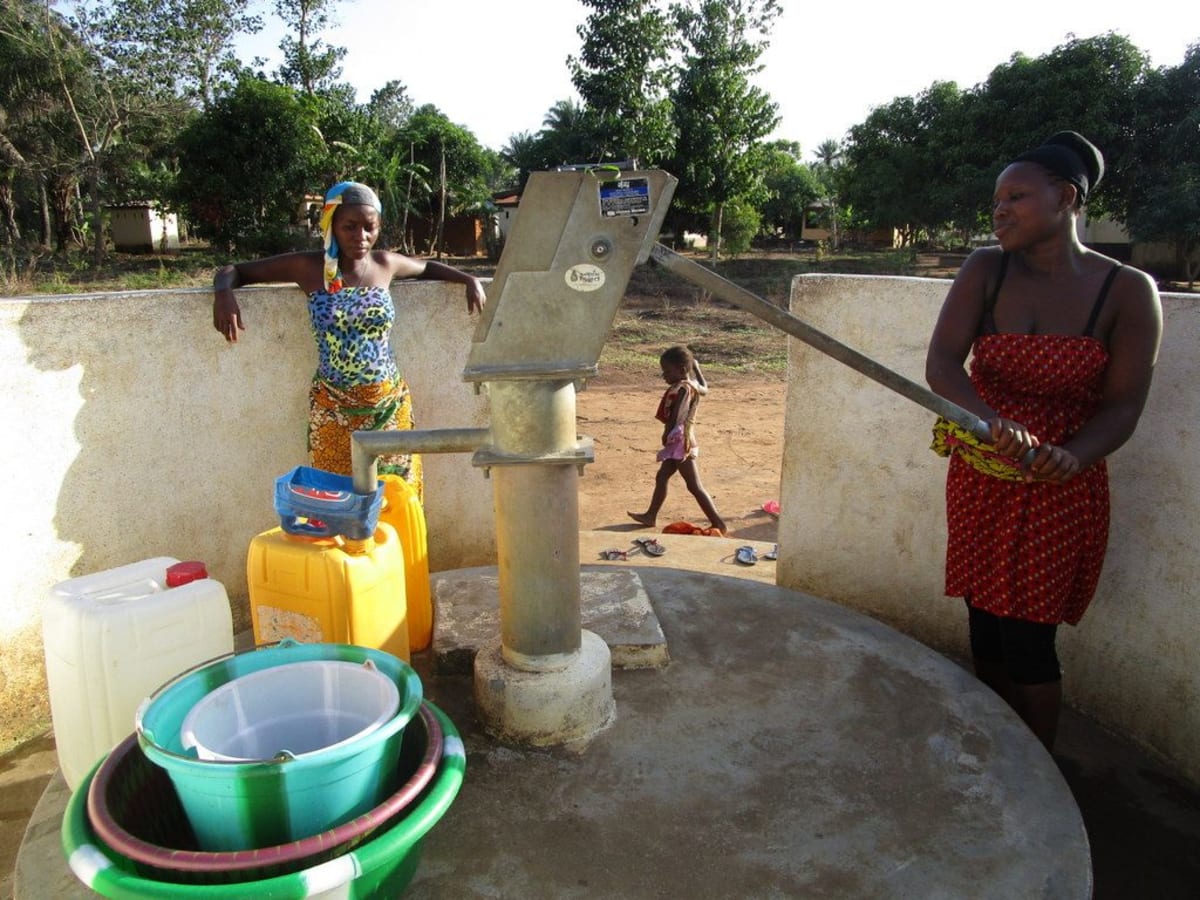A Year Later: Kitonki Community, War Wounded Camp

A year ago, your generous donation enabled us to restore water to Kitonki Community. The contributions of incredible monthly donors and others giving directly to The Water Promise allow our local teams to visit project sites throughout the year, strengthening relationships with communities and evaluating the water project over time. These consistent visits allow us to learn vital lessons and hear amazing stories – and we’re excited to share this one from local team member Omoh Emmanuel with you.
Just a few years ago, this was one of the most unpleasant communities in which to live. People had abandoned this well because it was hard to near impossible to pump enough water. This forced them to walk a long distance to the swamp, and children would often go to bed thirsty and hungry.
Now that a clean, reliable water well is in this community, we see a lot of smiling faces. Water constraints are over, and the environment is very clean. There used to be a big malaria issue because of the mosquitoes attracted to stagnant water, but now community members care for themselves and their environment by digging good drainage and clearing overgrowth.

Rehabilitation of the well is only one step along the journey toward sustainable access to clean water. The Water Project is committed to consistent monitoring of each water source. Our monitoring and evaluation program, made possible by donors like you, allows us to maintain our relationships with communities by visiting up to 4 times each year to ensure that the water points are safe and reliable.
Yaela Sesay lives near the well and has dedicated her time to being the pump caretaker. Mrs. Sesay talked about all of the changes she's witnessed after the rehabilitation of this well and the accompanying hygiene and sanitation training:
- We have stopped going to the swamp to fetch dirty water.
- We have stopped cooking dinner too late.
- Now that we live in clean surroundings, malaria, typhoid, diarrhea, and stomachaches are "running away from us."
- We are not letting animals roam about our homes freely.
- We say no to open defecation in our community.

Yaela Sesay
This is just one of the many ways that we monitor projects and communicate with you. Additionally, you can always check the functionality status and our project map to see how all of our water points are performing, based on our consistent monitoring data.
One project is just a drop in the bucket towards ending the global water crisis, but the ripple effects of this project are truly astounding. This well in Kitonki is changing many lives.
We met with young Kadiatu at the well, too.
She said, "I was brought into this community to help my aunt by my mother. My aunt was amputated, both the two hands, during the rebel war in Sierra Leone."
"She is not able to fetch water and do some other activities, that’s why they brought me here to assist her in the domestic work. I came to this community in 2015 and then, we would wake up at 4:30am and go to the swamp to fetch water," Kadiatu continued.

Kadiatu Koroma
"But since the intervention of this organization in this community, it has taken me away from going to the swamp to fetch water all year. Before I would normally sleep in class every day but since the intervention of this organization in this community, I have never slept in class."
This is only possible because of the web of support and trust built between The Water Project, our local teams, the community, and you. We are excited to stay in touch with this community and support their journey with safe water.
Read more about The Water Promise and how you can help.
See The Water Project in Kadiatu's Community »